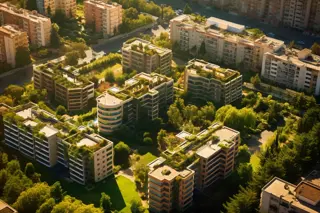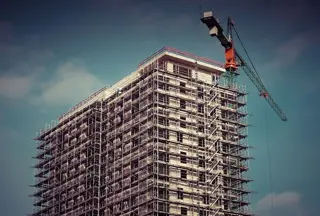
Discover how Gandhinagar's new residential complexes enhance appeal through smart home tech partnerships, rapid renovation services, and remote-friendly community spaces, catering to evolving urban lifestyles.

This comprehensive guide examines Gandhinagar's emerging micro-markets near upcoming infrastructure. Focusing on areas adjacent to GIFT City and north Gandhinagar developments, it offers strategic insights for high-potential property investment.

Explore how eco-friendly features like solar panels and rainwater harvesting in Bhubaneswar's real estate boost resale prices and rental yields. Discover how BDA regulations and environmental compliance drive sustainable development and higher property valuations.

Navigate RERA compliance in Rajkot for safe property purchases by verifying project registrations and ensuring developer accountability.

Explore Pathardi Phata, Nashik's rapidly developing area offering budget-friendly residential and commercial properties. Analyze price trends, forecasts, and investment opportunities, supported by real estate data and market insights.

Rising industrial and IT activities in Kanchipuram's peripheral areas like Chengalpattu drive high demand for affordable housing, with government schemes and private initiatives addressing supply gaps.

Explore Ranchi's rapid-growth localities like Morabadi and Kanke, where property values surge 20%+ annually due to infrastructure projects, economic expansion, and strategic demand-supply dynamics.

Explore subsidies, tax breaks, and PMAY integration to help first-time buyers access affordable housing in Bhubaneswar through targeted financial policies and benefits.

Explore Madurai's rental market with expert strategies for location selection, agent collaboration, lease navigation, budget management, and tenant rights.

Raipur's infrastructure projects like highways, metro systems, and Smart City initiatives are driving real estate growth, attracting investors and reshaping local property markets.

A 50-basis-point interest rate cut reshapes Jalandhar’s real estate landscape, reducing home loan EMIs by ₹800/month, boosting middle-class affordability, and unlocking developer financing opportunities in Punjab’s residential market.

Weighing renting vs. buying in Kochi? Compare budget flexibility, lifestyle needs, and long-term goals against market trends in Kerala’s booming real estate landscape.

Discover the essential steps for secure real estate transactions in Kochi, covering legal compliance, critical documentation, financing options, and smart negotiation tactics.

Delhi-NCR emerges as India's top housing market with 34% of listed homes priced over ₹10 cr, fueled by NRI investments and infrastructure growth, surpassing Mumbai's sales volume.

Discover Navi Mumbai's premium residential developments showcasing luxury amenities, market trends, and infrastructure-driven growth shaping the city's high-end real estate future.

The Uttar Pradesh government is transforming Noida into a modern industrial city with world-class amenities. A dedicated task force will oversee the redevelopment, focusing on infrastructure, investment attraction, and tourism, aiming to create a vibrant, livable city.

Discover essential factors to consider when investing in luxury homes, from choosing credible developers to evaluating location, safety, and modern amenities in thriving areas.

India’s Tier 2 cities are emerging as prime real estate destinations, driven by smart initiatives, sustainable practices, luxury developments, and improved connectivity.

The 2024 Union Budget prioritizes real estate with initiatives for affordable housing, infrastructure, and urban planning. It includes funding for PM Awas Yojana, industrial worker housing, and infrastructure projects, aiming to stimulate sector growth and economic expansion.

Luxury home sales soared by 40% in Q1 2024, while affordable housing sales dipped 20%. High-net-worth individuals and evolving lifestyle preferences drive luxury real estate demand in cities like Greater Noida and Gurgaon.

India's real estate is set for a boom, with 17 cities, including spiritual hubs, poised for growth. Government policies, infrastructure, and tourism are key drivers, attracting significant investment and transforming smaller cities into dynamic economic contributors.

Chennai and Hyderabad are two of the most popular cities in South India for real estate investment. Both cities have robust economies, unique attributes, and a promising real estate market. Hyderabad boasts a lower cost of living and significant growth in tech industries, while Chennai offers a...

Andhra Pradesh CM Chandrababu Naidu's focus on Amaravati could impact Hyderabad's real estate. While experts foresee a potential short-term correction, Hyderabad's strong fundamentals and robust job market suggest a positive long-term outlook.

India's retail landscape is shifting, with Grade A malls thriving while Grade C malls face high vacancy rates. Many struggling malls are being repurposed due to evolving consumer preferences and the rise of e-commerce.

India's luxury housing market is booming, driven by rising incomes, NRI investment, and a preference for upscale living. Sales of luxury homes have tripled in five years, with key cities like Delhi-NCR and Mumbai leading the surge.